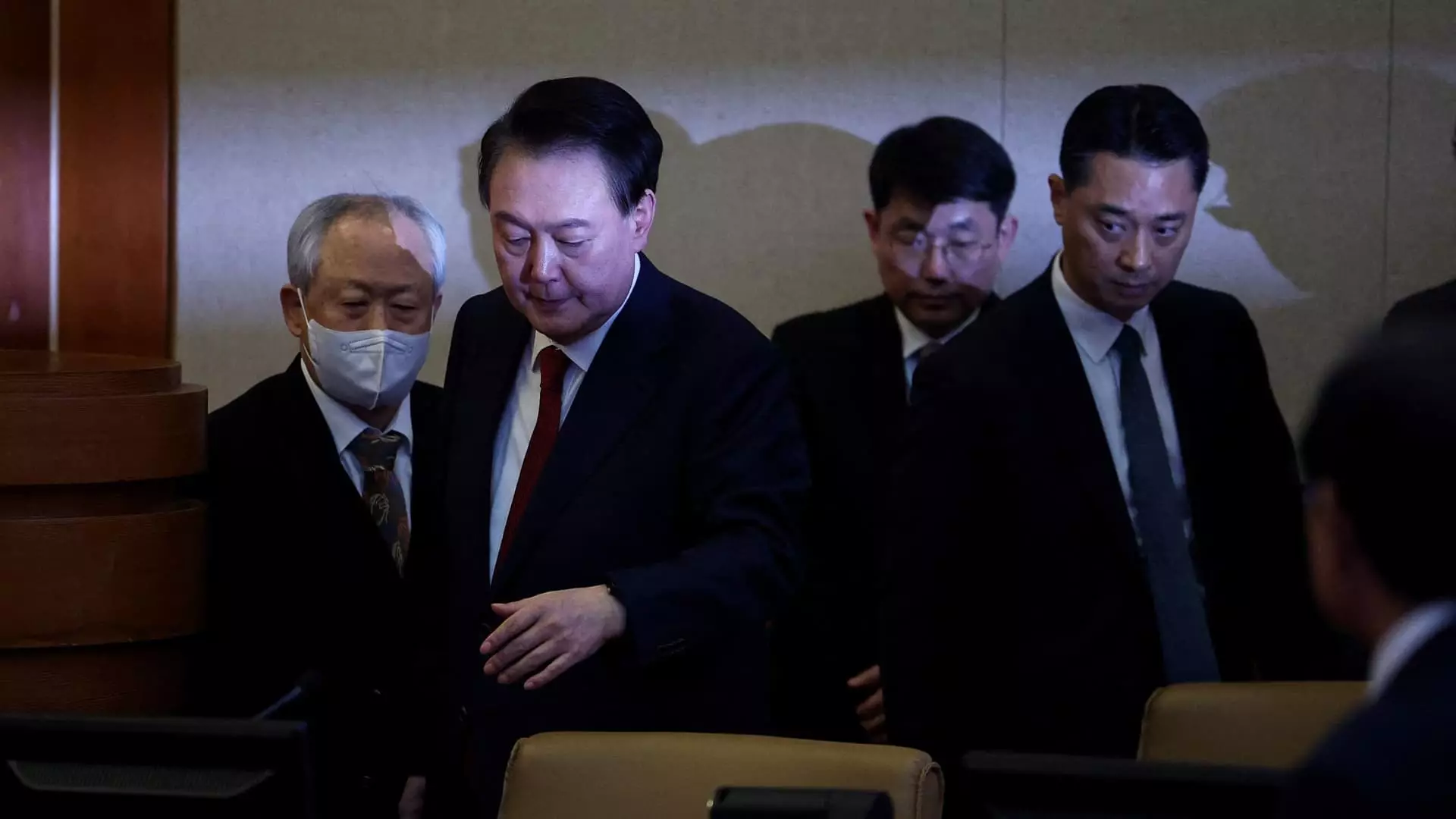In a dramatic turn of events, South Korea’s Constitutional Court has cemented its role as a crucial guardian of democratic processes by upholding the impeachment of President Yoon Suk Yeol. This significant ruling not only eradicates Yoon from his position but also signals a powerful statement against the misuse of executive authority. The unanimous decision to oust him, following his controversial imposition of martial law, speaks volumes about the judiciary’s commitment to uphold constitutional principles even amid political turbulence.
What’s particularly notable is the context surrounding Yoon’s actions in December—a time marked by rising tensions with North Korea. His hurried announcement of martial law was framed as a protective measure against perceived threats, labeling them as “North Korean communist forces” and “anti-state forces.” However, the court’s verdict reveals a stark reality: an attempt to manipulate legal frameworks for political expediency is an act of betrayal against the very democracy he was elected to uphold.
The Temporary Custodian of Power
With the Constitutional Court’s ruling, Prime Minister Han Duck-soo has been reinstated as the acting president, thus taking the helm during this transitionary period. This cautious approach appears designed to stabilize a nation that has weathered significant political strife. It raises questions about the emergency powers held by leaders during times of crisis, and whether such powers might be an avenue for overreach if left unchecked.
Moreover, South Korea’s political landscape is in flux, with the clock ticking down the 60-day timeline for a new presidential election. The implications of this situation extend beyond mere leadership; they touch upon the very fabric of South Korean governance and civil rights. The decision to reinstate Han Duck-soo may provide temporary comfort, but it also invites scrutiny regarding the preparations for a successor who understands and respects the limitations of power.
The Economic Ripple Effect
The aftershocks of this historic impeachment are already rippling through financial markets. Following the Constitutional Court’s ruling, the Kospi decreased by 0.59%, while the Kosdaq bucked the trend and saw a modest rise of 0.74%. Meanwhile, the South Korean won experienced a 1% strengthening, illustrating that while chaos abounds politically, investors are still keenly attuned to the potential for stability and rule of law.
What the stock fluctuations reflect is an underlying sentiment about continuity and stability versus uncertainty—a crucial element for economic confidence. The response from the markets suggests that investors may welcome the shift as a necessary step toward returning to a more predictable political environment and economic recovery, after a period marked by unexpected upheavals.
A Call for Civic Responsibility
What this moment ultimately encapsulates is a renewed call for civic engagement and accountability. The decision to impeach Yoon Suk Yeol illustrates that the vitality of democracy rests not solely on the shoulders of politicians, but on the active participation of its citizens. This moment invites South Koreans to reflect on their role in shaping the future of their political landscape—one that requires vigilance against authoritarianism and the preservation of rights.
As South Korea prepares for new elections, the question remains: will the electorate demand leaders who champion democratic ideals, or will apathy lead to another cycle of misgovernance? The choice lies ahead, and the stakes could not be higher.

